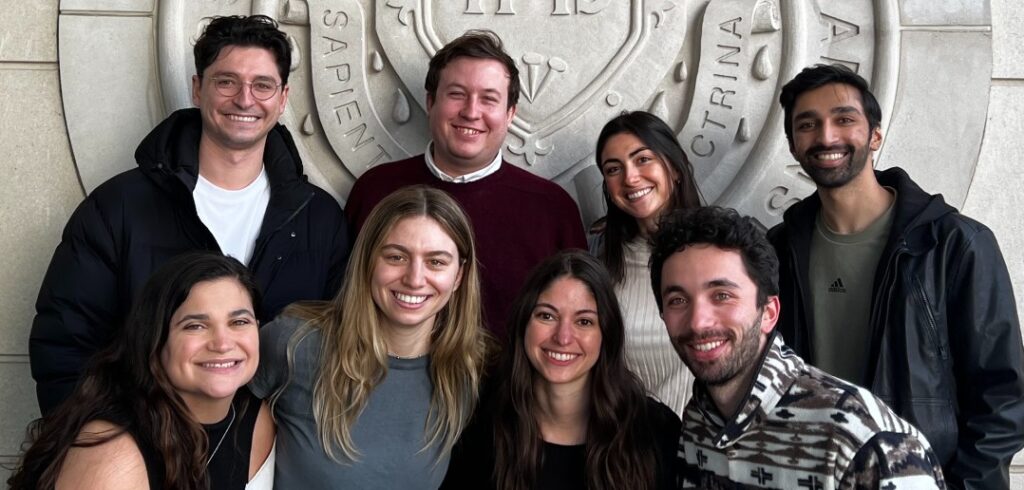Fordham Law students hit a three-run homer at the 15th Annual Tulane International Baseball Arbitration Competition between Jan. 19 and 21, swinging for the fences and winning three awards in total.
Competitors Mackenzie Alpert ‘24, Max Fishman ‘24, Tori Klevan ‘24, and Hiren Patel ‘24—alongside coaches Nico Corti ‘23, Kimberly Fishman ‘23, Sydney Glazer ‘23, and Shane Kuse ‘23 of the Fordham Sports Law Forum—won the overall competition after defeating approximately 40 other teams. The team also won the Written Advocacy Award and the Oral Advocacy Award.
The competition, hosted by the Tulane Sports Law Society at Tulane University Law School, is a simulated salary arbitration competition modeled closely on the procedures used by Major League Baseball (MLB). Salary arbitration cases featured this year included Vladamir Guerrero Jr. v. Toronto Blue Jays, Shane Bieber v. Cleveland Guardians, and Shohei Ohtani v. Los Angeles Angels. Judges included executives and in-house counsel for MLB teams as well as MLB player agents.
Though the competition was originally meant to be held in-person at Tulane University in New Orleans, both the competition and team practices were moved online due to the emergence and surge of the Omicron variant.
To prepare, the Fordham Law team spent their winter break mooting over Zoom. “We did it for pretty much two weeks straight,” said Klevan, who had previous experience working on sports-related litigation as a paralegal at Proskauer Rose. “We knew our positions and arguments like the back of our hands. And I think, ultimately, that’s why we won.”
Great coaching was another factor in their success, according to Klevan. “Our coaches were so good at giving us feedback and just helping us be the best we could possibly be in presenting our arguments,” she said. “They were instrumental [throughout]the entire competition.”
However, the competition was not without curveballs. The night before they face the opposing team, competitors are normally given new information which they use to make their rebuttals. “You have to be ready to present the next morning, so it’s just working on the fly as a team to come up with what you’re going to present,” said Kuse. “I think that’s probably one of the toughest elements of the competition.”
Another challenge emerged on the second day of competition due to a mix-up, when the Fordham Law team didn’t find out it was moving forward until five minutes before the next round. But the students kept their composure, quickly working together to prepare team member Mackenzie Alpert for the upcoming round.
“I think that was really cool because it’s similar to how things go in real-life advocacy,” Klevan said. “Even though there are fewer surprises in trials and arbitrations than you might see on TV, thinking on your feet and being ready to present when there are surprises is important.”
Participating in the competition prepared the students for post-graduate life in more ways than one—not only by developing their written and oral advocacy skills, but also by providing them an opportunity to become more familiar with a subject area of interest to them. “It’s really a great introduction into the sports law field, which is what most of us want to do post-graduation,” said Kuse.
Last year, Fordham Law’s team made it to the semifinals of the competition, after winning two years in a row (2019 and 2020). This year, they returned to the competition to clinch the top spot once again.
“I knew just how much work the 1Ls had put into it,” said Kuse. “It was great to see all the hard work pay off and win it.”

